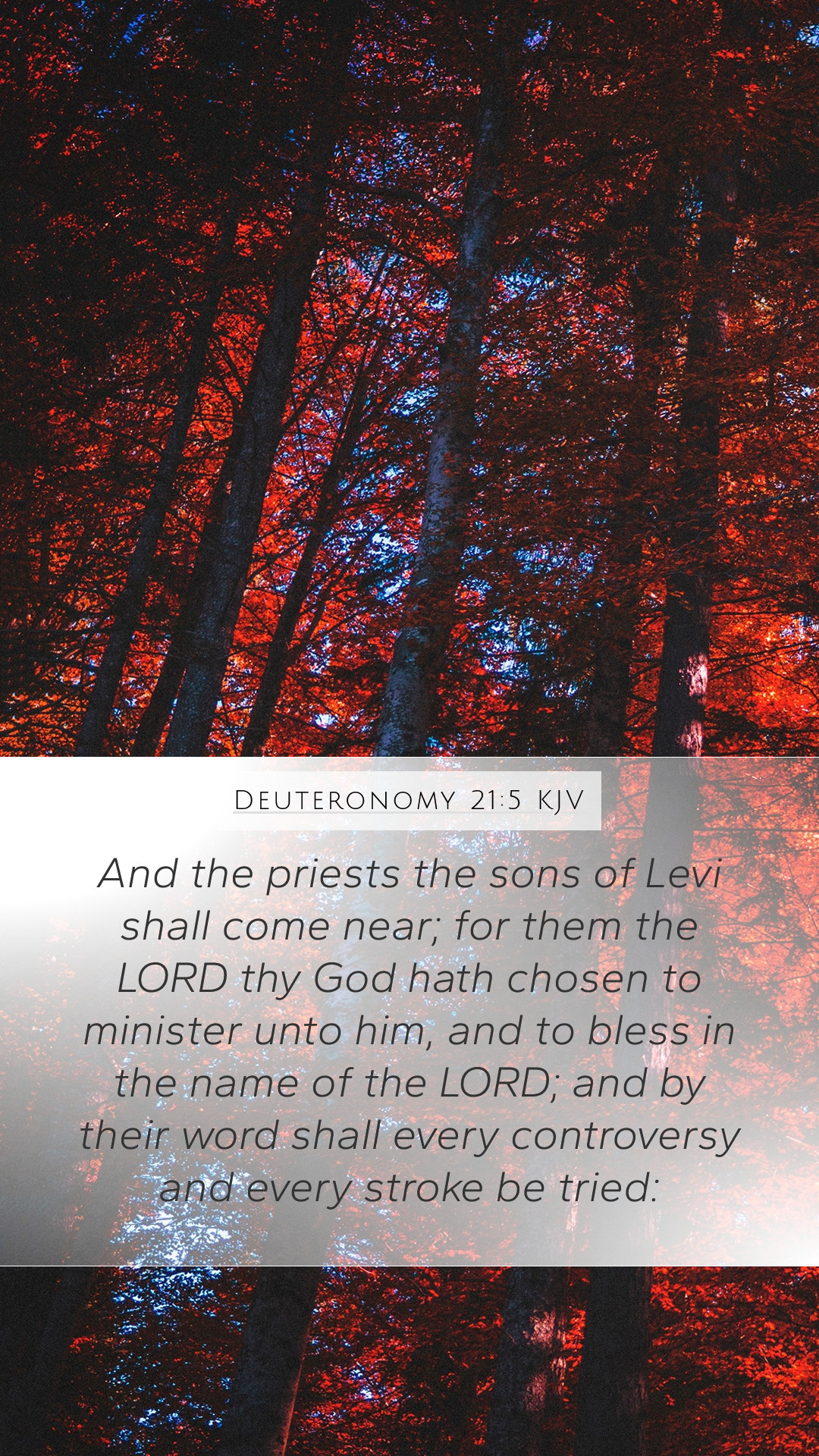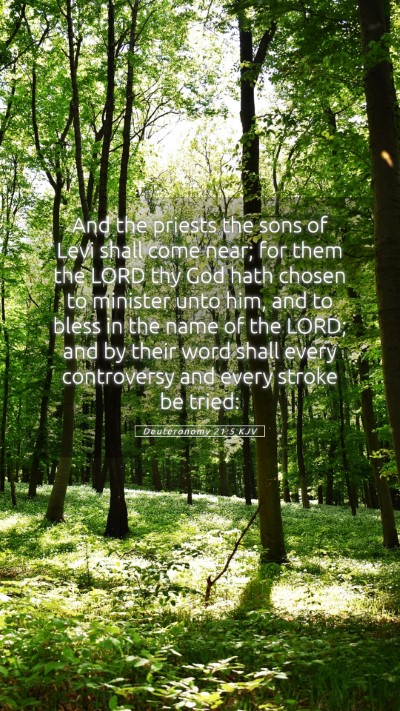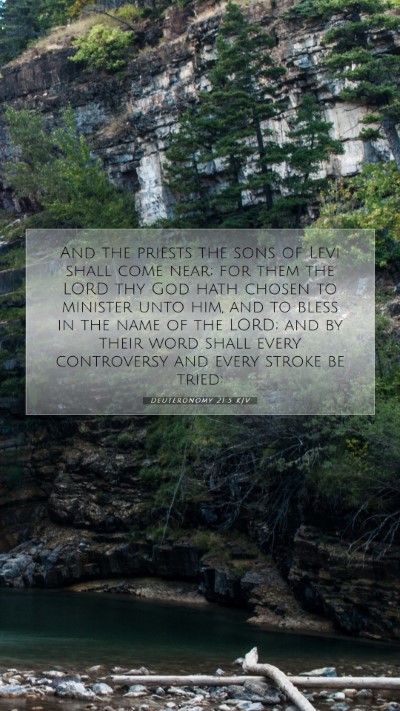Understanding Deuteronomy 21:5
Deuteronomy 21:5 states: "And the priests, the sons of Levi, shall come near; for them the Lord thy God hath chosen to minister unto him, and to bless in the name of the Lord; and by their word shall every controversy and every stroke be tried."
Bible Verse Meaning and Explanation
This verse conveys important aspects of the role of the Levitical priests. It emphasizes their divine appointment and responsibilities within the community of Israel.
Insights from Public Domain Commentaries
-
Matthew Henry Commentary:
Henry highlights the significance of the priests as representatives of God to the people. They are the chosen individuals assigned to perform sacred duties, including teaching the Law and mediating disputes.
-
Albert Barnes Commentary:
Barnes notes that the priests had the authority to pronounce blessings and oversee judicial matters. This function establishes them as vital mediators in maintaining justice and order within the Israelite community.
-
Adam Clarke Commentary:
Clarke elaborates on the theological implications of the Levitical priesthood. He underscores that their selection by God signifies both privilege and obligation, as they are set apart for holy service and instruction.
Key Themes and Concepts
Several key themes arise from Deuteronomy 21:5:
-
Divine Selection:
The priests are specifically chosen by God, which reflects the sanctity of their role. This indicates that spiritual leadership must come from those appointed by God Himself.
-
Ministry and Service:
The main duty of the priests is to minister to the Lord, illustrating the concept of servitude in worship. Their role was not just ritualistic but deeply relational with God.
-
Judicial Authority:
The capacity to decide controversies highlights the priest's role as judicial authorities in matters of the Law, further showing that spiritual and civil responsibilities were intertwined.
Application of the Verse
Understanding this verse within the context of modern Bible study can lead to several insightful applications:
-
Leadership in Faith Communities:
The role of spiritual leaders today can find parallels in the Levitical priesthood; they are expected to facilitate worship, teach scripture, and counsel on moral and ethical issues.
-
Importance of Divine Guidance:
The emphasis on God's selection of leaders underlines the necessity of seeking God’s guidance in leadership positions within the church and community.
-
Resolving Conflicts:
The role of reconciliation and mediation is essential in Christian communities, echoing the priestly duties of managing controversies.
Cross References
This verse relates to several other scripture passages:
- Exodus 28:1 - God's appointment of Aaron and his sons as priests.
- Leviticus 10:11 - The priests' responsibility to teach the Israelites.
- Numbers 3:6-10 - The duties of the Levites and their service in the Tabernacle.
Conclusion
Deuteronomy 21:5 serves as a crucial reminder of the sacred responsibilities held by spiritual leaders. It encourages individuals and Bible study groups to explore the nature of divine authority and the importance of stewardship within faith communities.
Further Bible Study Resources
For those interested in diving deeper into the meaning of Bible verses, consider these resources:
- Bible study guides focusing on the Old Testament.
- Online Bible study tools for cross-referencing scripture.
- In-depth commentaries on the Pentateuch.
Final Thoughts
Exploring the meaning and implications of biblical texts like Deuteronomy 21:5 enriches our understanding of scripture and its application in contemporary life. Understanding Scripture enhances personal faith and fosters deeper community engagement.


